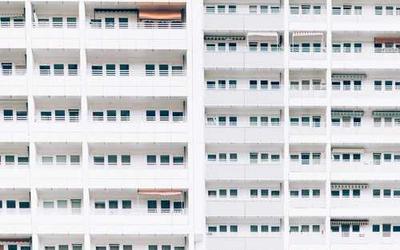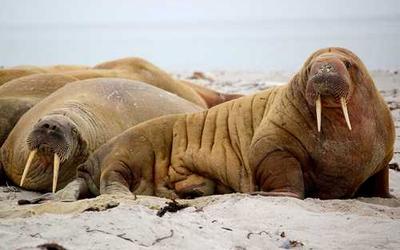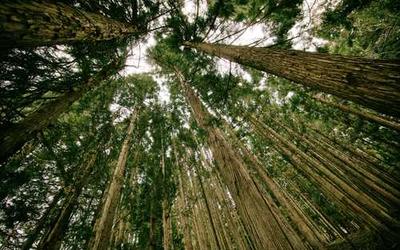🇵🇱 Poland
Poland Travel Guide - Local Insights & Authentic Experiences
5 destinations · Budget level 1.5
Overview
Poland is a nation shaped by struggle, survival, and deep Catholic faith. From seaside Kashubian fishing villages to highland Góral hamlets and multicultural Podlasie, each region adds a new dialect, recipe, and folk costume to the national tapestry. With 17 UNESCO World Heritage Sites including the ancient Białowieża Forest and medieval Kraków, Poland preserves layers of European history. Polish culture emphasizes family bonds, national pride, and 'gościnność' (legendary hospitality) that often means extra pierogi and homemade nalewka for guests. Sunday family dinners, name day celebrations, and church attendance remain central to Polish life, while younger generations embrace design hubs like Łódź's OFF Piotrkowska and street art in Katowice's Nikiszowiec, balancing heritage with modern creativity.
Travel tips
Name Day Culture: Name days can be bigger than birthdays—bring flowers in odd numbers if invited. Milk Bar Know-How: In 'bar mleczny' cafeterias pay at the cash desk first, then show your receipt at the serving window. Regional Transport: Book PKP Intercity for Warsaw–Gdańsk or Kraków trips, and use Polregio or Koleje Dolnośląskie for scenic Lower Silesia routes; validate paper tickets immediately. Outdoor Etiquette: Mountain shelters in the Tatras observe quiet hours—respect 'cisza nocna' and carry cash for beds. Historical Sensitivity: Approach WWII and Solidarity-era sites with appropriate respect and follow photography rules.
Cultural insights
Polish society deeply values family, faith, and national identity forged through historical struggles. Sunday dinners with extended family are sacred traditions lasting hours, while autumn 'Dożynki' harvest festivals parade bread wreaths through villages—a celebration you'll also encounter in neighboring Lithuania. 'Szacunek' (respect) for elders is paramount—stand when older relatives enter and offer them first serving. Regional differences shine through: Kashubian folk musicians keep the coastal dialect alive, Silesian families celebrate miners' Saint Barbara Day, and High Tatra Górals host all-night folk jams in wooden chalets. Polish hospitality means guests are treated like royalty, often with homemade pickles, nalewka liqueurs, and stories of perseverance.
Best time to visit
Spring (April-May): Mild weather, blooming apple orchards, Easter palms in Łowicz, temperatures 10-20°C. Summer (June-August): Warmest season with Wisła river picnics, Baltic beach days, and Wianki midsummer festivals, temperatures 15-25°C. Autumn (September-October): Golden forests in the Bieszczady Mountains and harvest 'Dożynki' parades, comfortable weather 8-18°C. Winter (November-March): Snow-dusted Kraków Christmas markets, Góral sleigh rides, and ice sailing on Masurian lakes, temperatures -5-5°C.
Getting around
PKP Intercity: Efficient network connecting major cities—book early for savings and choose 'TLK' or 'EIC' depending on comfort. International routes also connect to Czech Republic for easy multi-country exploration. Regional Rail: Polregio and local operators like Koleje Małopolskie reach painted villages (Zalipie) and Lower Silesia castles; validate tickets or risk fines. Public Transport: Trams, buses, metro in major cities—contactless cards work in Warsaw and Wrocław, but some smaller towns remain cash-based. Car & Camper Rental: Useful for Bieszczady backroads and Kashubian lakes; watch for speed cameras and mandatory winter tires. Cycling & Kayaks: Dedicated bike lanes in Gdańsk and Masurian kayak rentals let you explore at a slower pace.
Budget guidance
Budget Travel (PLN 80-150/day): Hostels/guesthouses PLN 50-90, milk bar meals PLN 14-28, regional trains PLN 8-20, free churches and Podlasie wooden villages. Mid-Range (PLN 150-300/day): Boutique hotels PLN 180-280, restaurant meals PLN 45-80, castle entries PLN 20-35, craft beer bars. Luxury (PLN 300+/day): Historic manor stays PLN 350-700+, chef's tasting menus PLN 200-350+, private bison tracking or Hel Peninsula kite lessons. Poland offers strong value versus Western Europe.
Language
Polish is a Slavic language with complex grammar and tongue-twisting consonant clusters. Essential phrases: 'Dzień dobry' (good day — JEHN DOH-bri), 'Dziękuję' (thank you — jeng-KOO-yeh), 'Przepraszam' (excuse me — psheh-PRAH-shahm), 'Czy mówi Pan/Pani po angielsku?' (Do you speak English?). English common among younger people in cities, while German and Ukrainian work near borders. Learning basic phrases or even attempting a 'smacznego' (bon appétit) melts hearts.
Safety
Poland is very safe with low crime rates and helpful locals. Watch for pickpockets in tourist areas, especially on Warsaw trams and Kraków's Main Square at night. Don't jaywalk—strict traffic rules apply, and fines are enforced. Winter conditions can be icy; carry spikes for Tatra hikes. Avoid political discussions about sensitive historical topics unless invited. Be respectful at Auschwitz, Gdańsk Shipyard, and other memorial sites. Emergency number: 112. Tap water excellent quality. Pharmacies ('apteka') widely available.
Money & payments
Polish Złoty (PLN) is the currency. Cards widely accepted in cities, but small bakeries and Podlasie guesthouses prefer cash. ATMs abundant and accept international cards. Typical costs: Coffee PLN 8-16, Pierogi PLN 16-30, Craft beer PLN 14-24, Regional rail day pass PLN 28-40, Mid-range hotel PLN 180-280/night. Tipping 10% in restaurants standard, round up for taxis and coat checks.
Destinations in Poland

Krakow, Central Europe
Krakow: Poland's Royal City
Historical Pride: Locals are fiercely proud of their royal history and cultural heritage. Academic Culture: Large student population, locals maintain intelle…

Lodz, Central Europe
Lodz: Hollywood's Forgotten Twin, Textile Soul
Textile Ghost Town That Isn't Dead: Łódź was the "Manchester of Poland" - massive red-brick factories still dominate the cityscape but now house galleries, c…

Lublin, Central Europe
Lublin: Crossroads of the Kingdom, Multicultural Soul
Student City Atmosphere: With over 70,000 students from 9 universities including UMCS, locals are used to young energy and international faces - student disc…

Warsaw, Central Europe
Warsaw: Poland's Phoenix City
Cash Culture: Many places prefer cash, locals always carry złoty notes. Traffic Light Respect: Locals wait for green lights, jaywalking is frowned upon. Sund…

Wrocław, Central Europe
Wrocław: Dwarfs and Discoveries
Dwarf Obsession: Over 600 bronze dwarf statues scattered throughout the city—started as political satire against communism and now beloved symbols locals pro…
